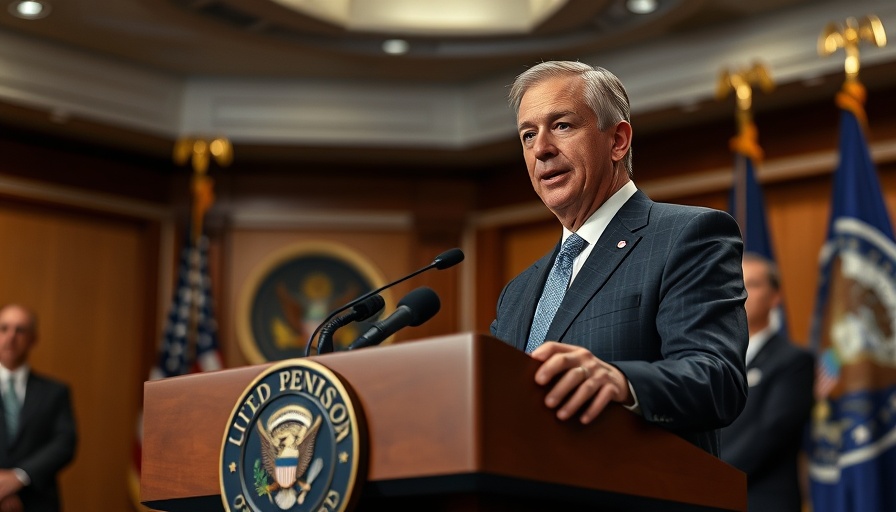
Trump's Surprising Shift on Iran Policy
In a striking turn of events, President Donald Trump has suggested a potential regime change in Iran following a recent airstrike targeting key Iranian nuclear sites. This announcement is a notable deviation from the administration's previously stated goal of avoiding escalation and instead hints at a more aggressive foreign policy stance.
The Context: U.S. Targeting of Iranian Nuclear Sites
On June 22, 2025, in a coordinated effort with Israel, the United States executed airstrikes on three nuclear facilities in Iran, dramatically raising tensions between the nations. While Defense Secretary Pete Hegseth emphasized that the operation was "not about regime change," Trump's subsequent comments signal a stark contrast in rhetoric from the administration's official stance.
What Led to This Moment?
This shift comes at a time when Iran's nuclear ambitions have come under increased scrutiny. The United States has long sought to prevent Iran from developing nuclear weapons, and recent attacks have intensified this focus. With Secretary of State Marco Rubio warning against Iranian retaliation, the environment remains tense, filled with uncertainty as both nations grapple with the potential consequences of their actions.
Understanding Regime Change: Historical Precedents
Regime change has often been a controversial topic in U.S. foreign policy, recalling instances from the past where the U.S. involvement led to significant geopolitical shifts. Examples include the overthrow of Saddam Hussein in Iraq and the ongoing turmoil in Libya. Such events have sparked debates about the effectiveness and morality of U.S. intervention.
Counterarguments: The Risks of Escalation
While some may argue that a regime change could lead to a more favorable government in Iran, there are substantial risks involved. Critics of the strategy highlight that destabilizing a government often leads to further chaos, particularly in a region already fraught with conflict. There are concerns that reckless aggression could spiral into a broader war, exacerbating tensions not just with Iran, but also with allied nations and affecting global peace.
What Comes Next for U.S.-Iran Relations?
The current standoff poses a question of whether the U.S. can simultaneously threaten action while attempting to restart negotiations. As Trump's social media post demonstrates, political rhetoric can often lead to unpredictable outcomes. What remains clear is that the U.S. must tread carefully to manage diplomacy while keeping military options on the table.
Looking Ahead: A Precarious Balance
As global observers watch closely, the coming months will be critical in shaping U.S.-Iran relations. The Biden administration will face the complex task of re-engaging Iran diplomatically while addressing security concerns. Will dialogue prevail, or will military action dictate the course of history in the region?
This situation underscores the importance of understanding geopolitical dynamics and the need for careful analysis of foreign policies. The ongoing discussions within international corridors highlight that clarity in intention is crucial to avoid unnecessary conflict and escalation.
As citizens are called upon to remain informed about such significant events, it is imperative to engage with evolving stories and hold discussions on their implications. Awareness of these geopolitical shifts will be key in understanding the larger framework of international relations.
 Add Row
Add Row  Add
Add 



Write A Comment